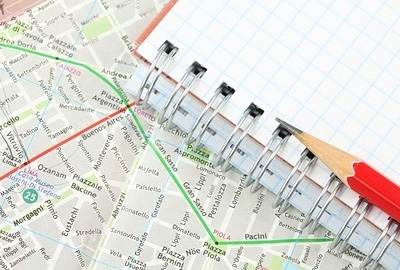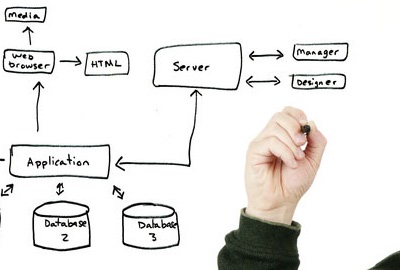Planning to Prepare the Project Request for Proposal (RFP)
- from ITtoolkit.com

The Request for Proposal (RFP) is an important "project procurement deliverable", used to solicit competitive bids prior to the purchase of project related goods and services. You don't always need an RFP to make those purchases, but when you do, you need a good one - designed to support informed decision making and return on investment. Read on for more.
What is an RFP? The RFP deliverable (produced as a form or document) is a formal procurement mechanism, by which requirements are defined, questions are posed and criteria are presented. Bidders respond to these requirements, questions and selection criteria, providing the basis for an informed analysis of clearly defined alternatives.
The RFP - A Tool for Project Procurement
Once RFP's are prepared, distributed and responded to, said responses are evaluated, and purchasing decisions are made. As such, under the right set of project needs and circumstances, the RFP is an essential part of the project "procurement" process. The RFP is a tool within a project, and as with every other project "process", RFP production creates an overhead factor, elongating the overall project timeline. As such, the full blown RFP should only be utilized when needed to ensure project success.
In a world of options and choices, the RFP is an effective decision-making tool, designed to ensure that the most viable solutions, and competent providers are given due consideration.
The Value of the Project Request for Proposal
A standardized approach to preparing the project "Request for Proposal" offers a number of substantial and tangible benefits (both for the project team and the project itself):
- Forces a defined specification of project requirements.
- Provides "context" for a comparative analysis of vendors, products, costs and services.
- Promotes informed decision-making.
- Provides an opportunity for vendor interaction prior to any purchasing commitments.
- Promotes successful contract negotiations, providing the basis for all contractual terms and conditions.
- Establishes a standardized basis for solutions evaluation, using a structured set of evaluation criteria.
- Promotes consideration of creative solutions, opening up "possibilities" and leveraging external expertise.
It All Starts With an RFP Process
In order to maximize process success, RFP production should cover eight (8) key management components, from planning to proposal selection. Each component is summarized below:
- Phase #1 - RFP Planning. The RFP process is planned, including the selection of the RFP Team, identification of the chosen bidders, creation of the RFP timeline, requirements development and creation of the response evaluation criteria.
- Phase #2 - RFP Preparation. During this stage the RFP draft is prepared and produced using the designated and appropriate format.
- Phase #3 - RFP Review. The RFP draft is reviewed to ensure that all documentation requirements are met, and comments and feedback are provided.
- Phase #4 - RFP Revision. The RFP draft is revised to reflect required changes as identified in the "review" phase.
- Phase #5 - RFP Approval. The revised RFP is approved by all decision making stakeholders and the final version is produced.
- Phase #6 - RFP Distribution and Support. The approved RFP is distributed to the selected bidders, and submission support is provided as needed, including an RFP bidders conference (if required).
- Phase #7 - RFP Response Evaluation. Received RFP responses are reviewed and evaluated according to the established criteria.
- Phase #8 - RFP Selection. The RFP winning proposal and alternative are selected, and the documented RFP is used to create a documented project Statement of Work (SOW) as needed. The losing bidders are notified to close the RFP process.
As with most other process deliverables, the project RFP is best prepared through a collaborative process, structured for a full consideration of needs and requirements. The key elements to RFP process "success" are timing and preparation. The RFP process can begin as soon as the foundational requirements are fully defined. Obviously, sound purchasing decisions cannot be made until all needs, assumptions and constraints are known and quantified.
Learn to Fast Track
When it comes to managing, you need more than one approach to be consistently successful. The way you manage when surrounding conditions are good, is not the way you manage when time is running short, resources are stretched thin and people aren't working together. That's what fast tracking is for - and we can teach you how it's done. Learn More
More on Projects and Project Management
Getting Projects Defined for Action and Approval
In order to have any realistic shot at a successful project, (delivered on time and on budget) the overall vision, work effort and expected result must first be fully defined --- i.e. broken down into small, manageable and actionable parts. This article provides a practical overview of the definition process, putting "project definition" into context and perspective. Read More
Testing Deliverables: Validating Form, Function and Success
Testing is essential to the success of any technology project. Despite the best technical plans and designs, problems, errors and bugs do occur. And, in the interests of all concerned, all reasonably evident problems should be uncovered and resolved long before a given deliverable is put "in production".
CHECK OUT THE FAST TRACK PROJECT TOOLKIT.
If you're looking for a fast, easy way to achieve project planning success, you'll find it inside the Fast Track Project Toolkit. This unique, informative online course gives you everything you need to become a project leader and fast tracking expert. Here's what you'll learn:
-
How to plan and govern projects using strategic project fast tracking.
-
How to use strategic project fast tracking to save time and make the most of available resources.
-
How to use strategic fast tracking to overcome project constraints and limitations.
-
How to use strategic fast tracking to negotiate with stakeholders and build shared expectations.
-
How to use strategic fast tracking to become a more productive project manager and team member.
Source: Unless noted otherwise, all content is created by and/or for ITtoolkit.com
Related Articles
About Us

ITtoolkit.com staff writers have experience working for some of the largest corporations, in various positions including marketing, systems engineering, help desk support, web and application development, and IT management.
ITtoolkit.com is part of Right Track Associates, proprietors and publishers of multiple web sites including ITtoolkit.com, Fast Track Manage, HOA Board List and more. We started ITtoolkit.com in 2001 and have continued to grow our web site portfolio, Toolkit products, and related data services. To learn more, visit us at Right Track Associates.









